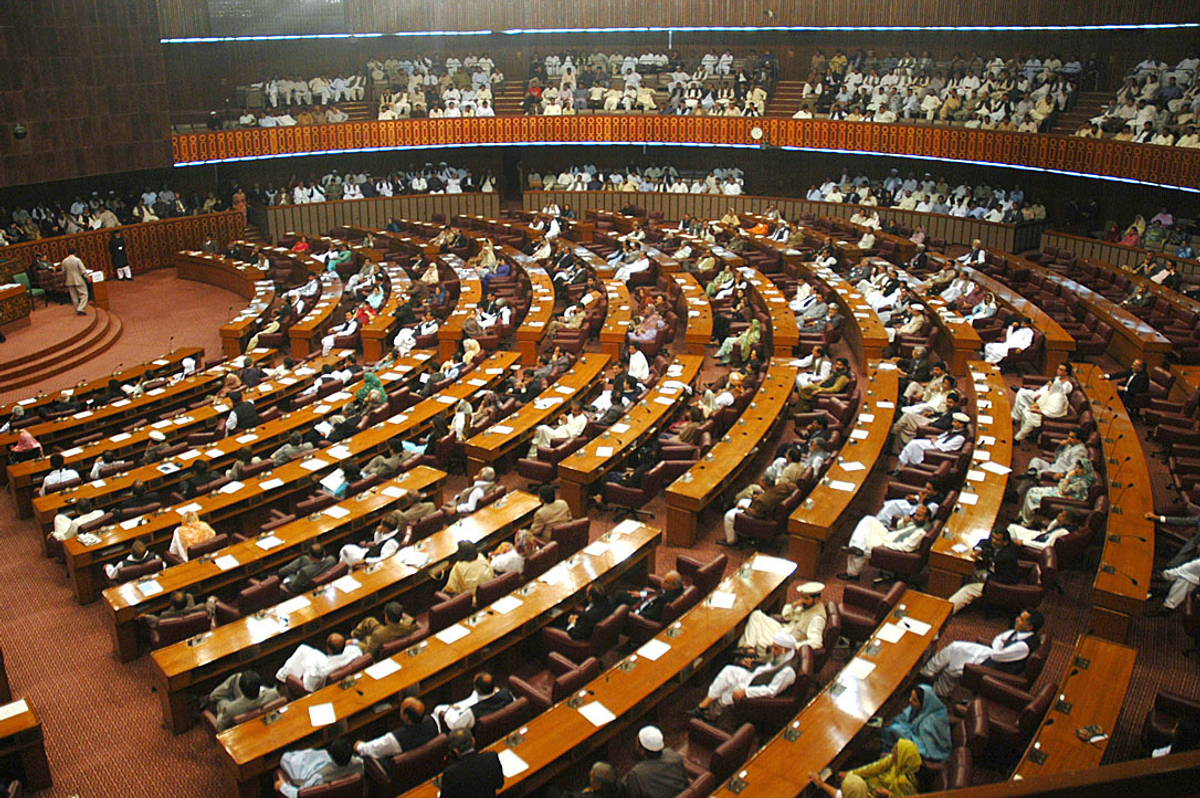Pakistan Senate votes to end death penalty in select offenses under global rights push
House passes bill scrapping capital punishment for public stripping of women and harboring hijackers

Javed Hussain
Correspondent
I have almost 20 years of experience in print, radio, and TV media. I started my career with "Daily Jang" after which I got the opportunity to work in FM 103, Radio Pakistan, News One, Ab Tak News, Dawn News TV, Dunya News, 92 News and regional channels Rohi TV, Apna Channel and Sach TV where I worked and gained experience in different areas of all three mediums. My journey from reporting to news anchor in these organisations was excellent. Now, I am working as a correspondent with Nukta in Islamabad, where I get the opportunity of in-depth journalism and storytelling while I am now covering parliamentary affairs, politics, and technology.

In a significant legislative development aimed at aligning domestic laws with international human rights obligations, the Pakistan Senate on Friday passed a bill removing the death penalty from two sections of the Pakistan Penal Code.
The move is part of Pakistan’s efforts to fulfill conditions under the European Union’s GSP+ trade scheme and comply with the International Covenant on Civil and Political Rights (ICCPR).
The legislation, titled The Criminal Laws (Amendment) Act, 2025, was introduced in the upper house by Minister of State for Interior Talal Chaudhry on behalf of Interior Minister Mohsin Naqvi. It was passed with majority support under the chairmanship of Deputy Chairman Syedal Khan Nasir.
The bill amends provisions of both the Pakistan Penal Code (Act XLV of 1860) and the Code of Criminal Procedure (Act V of 1898) -- specifically Section 354A and Section 402C, along with Schedule-II. It eliminates the death penalty as a punishment under these sections, replacing it with life imprisonment and fines.
What the changes mean
Section 354A previously prescribed the death penalty or life imprisonment for individuals convicted of assaulting a woman and stripping her clothes in public. The amended law removes the option of capital punishment, leaving life imprisonment and fines as the sole penalties.
“Whoever assaults or uses criminal force to any woman and strips her of her clothes and, in that condition, exposes her to the public view, shall be punished with life imprisonment and shall also be liable to fine,” the revised section now says.
Section 402C relates to harboring individuals involved in aircraft hijacking. It originally allowed for either the death penalty or life imprisonment. Under the new amendments, only life imprisonment and fines will apply to such offenses.
The bill’s statement of objectives emphasizes compliance with Article 6(2) of the ICCPR, which allows capital punishment only for the “most serious crimes” and under strict legal safeguards.
“In countries which have not abolished the death penalty, sentence of death may be imposed only for the most serious crimes in accordance with the law in force... and not contrary to the provisions of the present Covenant,” the bill notes.
To support this legislative shift, the Ministry of Interior held multiple stakeholder meetings in September 2021 to evaluate how the death penalty could be limited in line with international law and Islamic jurisprudence.
Following these consultations, the ministry drafted the amendment bill to eliminate capital punishment from the two selected sections.
The bill was formally introduced in the Senate on June 19, 2025, and approved by the Senate Standing Committee on Interior on July 2. It was passed in the full house on Friday and will now move to the National Assembly for further approval.
Government defends abolishing death penalty in select crimes
During the Senate debate, Federal Law Minister Senator Azam Nazir Tarar defended the changes, arguing that the severity of punishment does not necessarily deter crime.
“It is wrong to think that the death penalty will reduce crimes. The severity of the punishment does not deter crime,” Tarar said.
“There is no death penalty in Europe, and their crime rate is just two percent. Their prisons are empty and have become museums. Here, we have death penalties in 80 to 100 laws and the crime rate is sky-high.”
He added that the existing provision has been misused in personal vendettas.
“Women are exploited in personal fights, and fake cases are made under this law because it provides for the death penalty and no bail,” he said. “We need to acknowledge the ground realities.”
Opposition voices concern over women's safety
However, Senator Samina Mumtaz Zehri, Chairperson of the Standing Committee on Human Rights, opposed the bill, warning that weakening laws in a country already struggling with gender-based violence could prove dangerous.
“There are so many rape cases where the prosecution is weak. Women are being killed and raped, yet no punishment is being given,” she said.
“Now if someone tears a woman’s clothes, you have relaxed the law. This is not right. We are an Islamic country. You should be making the law more strict, not lenient.”
Zehri stressed that without addressing flaws in the prosecution, policing, and judicial systems, reducing sentences sends the wrong message.
“We should focus on strengthening prosecution, reforming police, and improving the judiciary. Instead, we’re making concessions under pressure from foreign institutions due to economic concerns.”
She also highlighted broader societal discrimination.
“Women still face many obstacles. If a woman doesn’t wear a dupatta, she is labeled vulgar. And now, by reducing the penalty for assault, you’re weakening protections even further.”










Comments
See what people are discussing